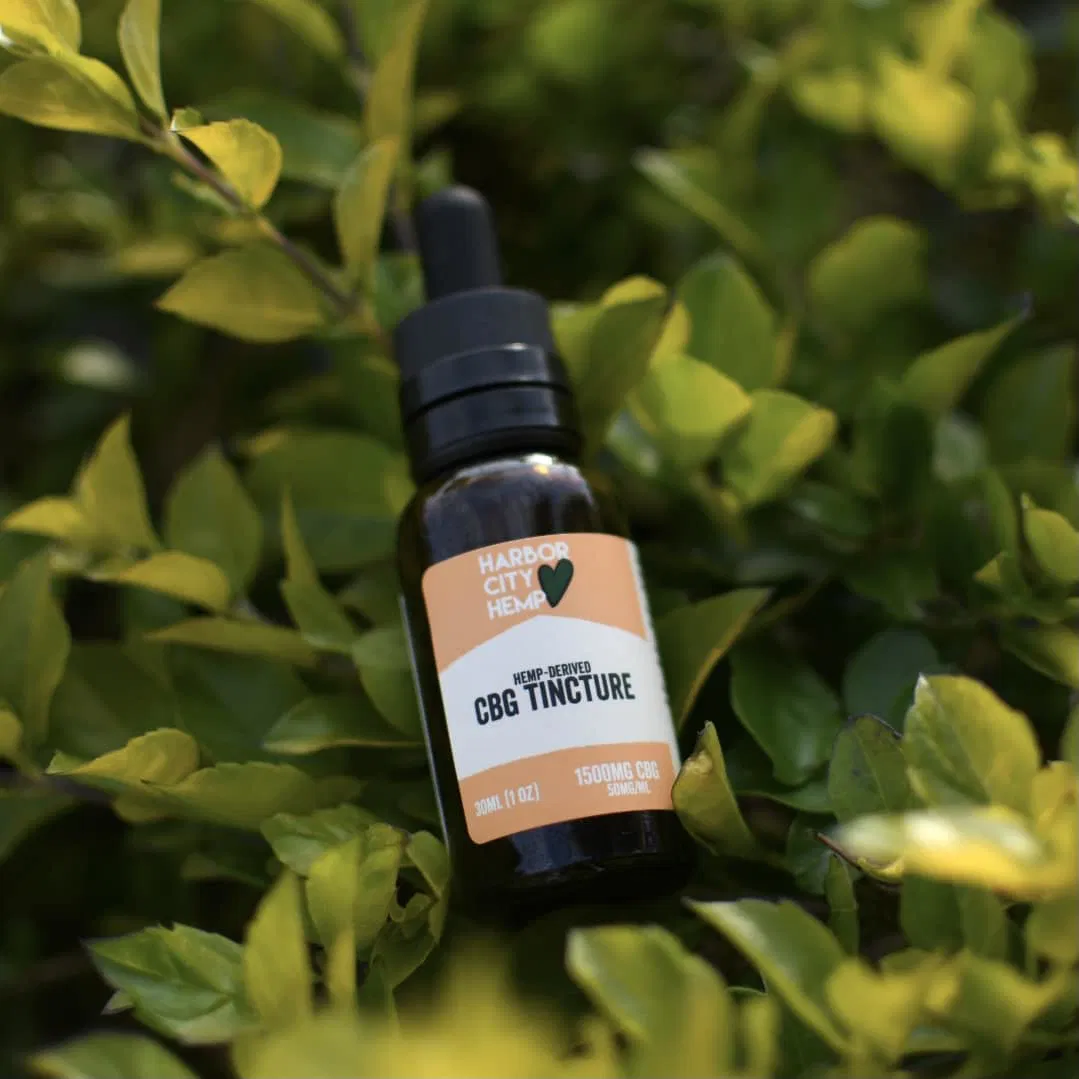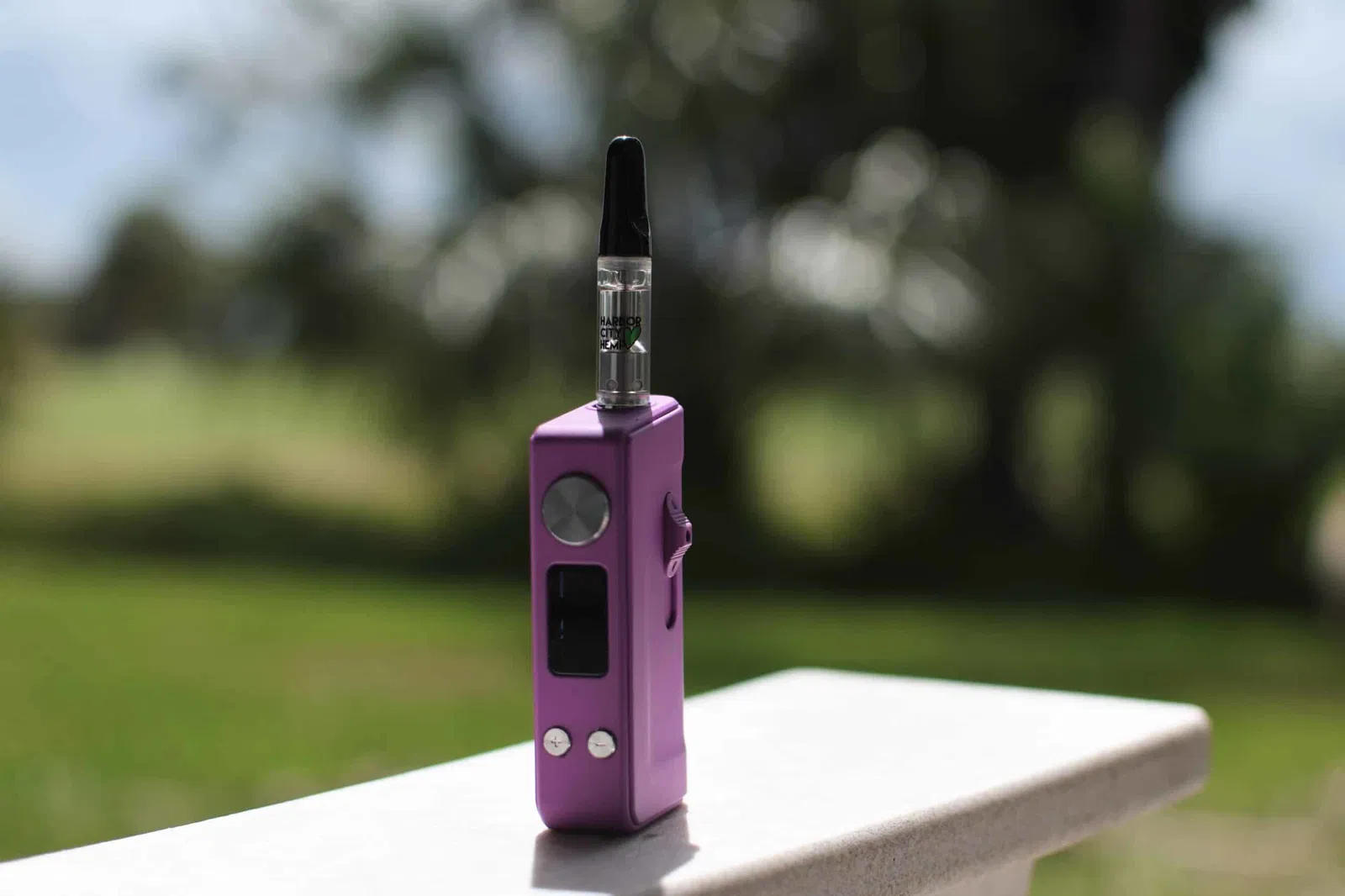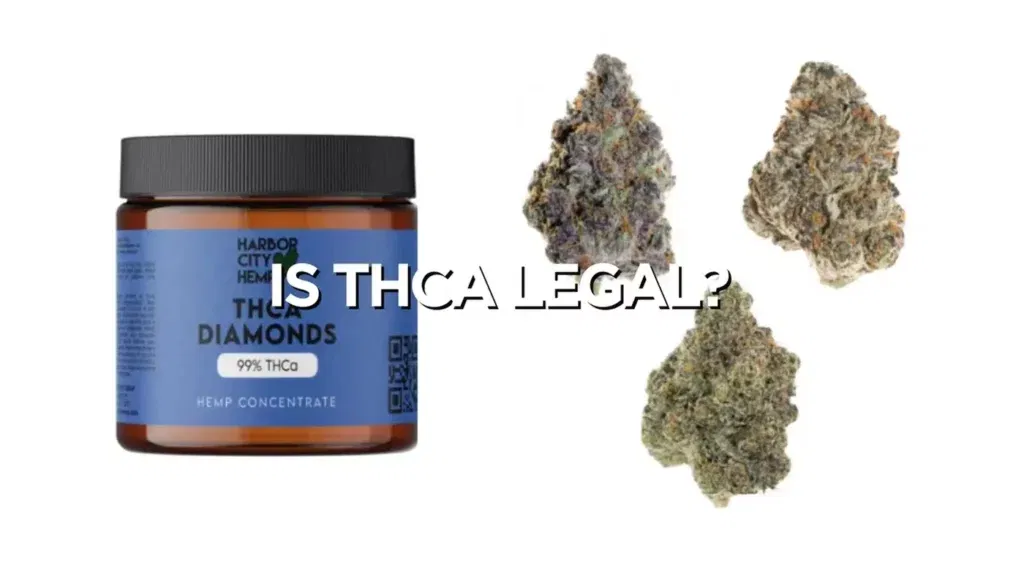Picture lush green cannabis plants swaying in the breeze, exuding an enticing aroma that captures the imagination. But beyond this enchanting facade lies a treasure trove of compounds, each with its own tale to tell. Among these, THCa holds a special place, serving as the precursor to the beloved cannabinoid THC. While THC often steals the spotlight for its psychoactive effects, THCa quietly awaits its moment to shine.
But What Is THCa? Is it legal? And why do you need to know about it?
In this blog, we’ll navigate through the scientific intricacies of THCa, deciphering its impact on the body and mind. We’ll also shed light on the complexities surrounding its legal status and everything you need to know before making a purchase.
So, fasten your seatbelts, grab your favorite CBD-infused beverage, and let’s embark on an exploration of THCa and address the essential question: Is THCa Legal?

First Thing First, What Is THCa?
THCa, or tetrahydrocannabinolic acid, is a non-psychoactive cannabinoid found in raw and live cannabis plants. It is the acidic precursor to THC (tetrahydrocannabinol), the prominent compound responsible for the psychoactive effects associated with cannabis consumption.
While THCa itself does not produce intoxicating effects, it has garnered significant attention for its unique properties and its role in the emerging field of medical cannabis.
How Is THCa Formed?
THCa is produced within the trichomes of the cannabis plant, which are the small, sticky, glandular structures that cover the flower buds and leaves. When the cannabis plant is growing, it synthesizes THCa in response to various environmental factors, including light exposure, temperature, and humidity.
THCa vs. THC
THCa’s molecular structure includes a carboxylic acid group (COOH) which is responsible for its acidic properties. This molecular configuration distinguishes THCa from THC. When cannabis is exposed to heat, the thermal energy breaks down the carboxylic acid group, resulting in the release of carbon dioxide (CO2) and the conversion of THCa to THC.
This transformation, known as decarboxylation, is crucial for unlocking the psychoactive properties of cannabis and making it bioavailable for the human body.
How Does THCa Affect the Body?
Within the body resides a fascinating network known as the endocannabinoid system (ECS). This intricate system plays a pivotal role in maintaining balance and harmony, regulating crucial functions such as mood, sleep, appetite, immune response, and more.
So, how does THCa come into play? This remarkable compound has a special affinity for the ECS. Once ingested, THCa interacts with the ECS, particularly with the CB1 and CB2 receptors.
This interaction sets off a chain of reactions within the body, ultimately contributing to a state of equilibrium and well-being.
THCa Flowers
THCa flowers, also known as “cannabis flower” or “bud,” represent the dried and harvested part of the female cannabis plant. The visual appeal, fragrance, and taste of THCa flower differ based on the particular strain or type of cannabis, leading to a diverse spectrum of effects.
THCa flowers can be classified into two main categories: Sativa and Indica strains.
Sativa
Sativa strains are famous for their uplifting and energizing vibes. These strains are often linked to heightened creativity and productivity, making them a top choice for daytime use. Sativa plants typically sport tall, slender leaves and flourish in warm climates.
Indica
Indica strains offer relaxing and sedating effects. They are commonly chosen for nighttime use or for unwinding after a long day. Indica plants typically have broader leaves and are well-suited for cooler climates.
Hybrid
Hybrid strains, as the name suggests, are created by crossing Sativa and Indica plants, resulting in a combination of their unique traits. These hybrid strains can be either Sativa-dominant, Indica-dominant, or balanced, depending on the genetics of the parent plants.
Sativa-dominant hybrids are known for providing a blend of uplifting and creative effects, while still offering some degree of relaxation. Indica-dominant hybrids, on the other hand, offer a mix of relaxation and euphoria, making them suitable for unwinding in the evening while still maintaining some cognitive clarity.
THCa: Different Methods of Consumption
There are various methods to enjoy the wonders of THCa. Whether you want to unleash its hidden power, or simply use it raw, this compound has something to offer. Here, we take a look at these exciting options and explore their advantages:
THCa Tinctures
Tinctures are a popular way to consume THCa. They are liquid extracts made by soaking raw cannabis in alcohol or another solvent. THCa tinctures are often taken sublingually, meaning they are placed under the tongue for quick absorption into the bloodstream. As a result, they are a convenient and discreet way to experience the goodness of THCa.
THCa Topicals
THCa topicals, including creams, balms, and lotions, are applied directly, making it a great option for those seeking targeted relief. Some products contain other soothing ingredients to enhance the effects.
THCa Capsules
If you prefer a more convenient and consistent way to consume THCa, capsules might be the perfect fit for you. They contain a measured amount of THCa and can be easily integrated into your daily supplement routine.
With precise dosing and no need for inhalation or sublingual administration, THCa capsules offer a discreet and controlled way to experience the wonders of this powerful compound.
THCa Crystalline
If you’re interested in a more potent and concentrated form of THCa, look no further than THCa crystalline. This pure, crystallized form of THCa is produced by refining raw cannabis extracts to remove impurities and create a product that is almost entirely THCa.
With its high potency, THCa crystalline is often used by experienced cannabis consumers looking for a powerful and fast-acting option.
THCa Edibles
For those who prefer to enjoy their THCa in a delicious and convenient form, THCa-infused edibles are a great choice. From gummies to chocolates to beverages, there are countless options for incorporating THCa into tasty treats.
That said, it’s essential to note that edibles typically take longer to work and have longer-lasting effects.
Raw Cannabis
One of the simplest ways to consume THCa is by consuming raw, fresh cannabis. Some people add raw cannabis leaves to their salads to enjoy the THCa effects without the psychoactive experience.
Juicing
Another popular method of consuming THCa is juicing raw cannabis leaves and buds. Cannabis juice can be made by blending raw cannabis with other fruits and vegetables.
Factors to Consider When Choosing THCa Products
As the market for THCa Products continues to expand, it becomes increasingly important to consider essential factors when selecting the right THCa product for your needs.

Quality and Purity
One of the most critical factors to consider when choosing THCa products is the quality and purity of the product. Look for products that have been tested by third-party laboratories for potency, purity, and the presence of contaminants such as pesticides, heavy metals, and microbial impurities.
This information is typically available on the product packaging or the company’s website. High-quality THCa products should be free from harmful contaminants and should accurately reflect the cannabinoid content listed on the label.
Source of the Cannabis
The source of cannabis used to produce THCa products is another important consideration. Cannabis plants are known to absorb toxins and impurities from the soil, so it’s essential to choose products made from organically grown cannabis to minimize the risk of exposure to harmful substances.
Additionally, consider whether the cannabis is sourced from reputable, licensed, and compliant growers who adhere to strict cultivation practices and sustainability standards.
Extraction Method
The method used to extract THCa from the cannabis plant can significantly change the quality and safety of the product. CO2 extraction is often considered one of the most efficient and safe methods for obtaining THCa, as it allows for the extraction of cannabinoids without using harmful solvents.
On the other hand, products that have been extracted using potentially hazardous solvents such as butane or propane may pose health risks if traces of these solvents remain in the final product. Be sure to look for products that disclose their extraction methods and prioritize those that use safe and clean extraction processes.
Terpene Profile and Entourage Effect
Many consumers are interested in the entourage effect, a theory suggesting that cannabinoids and terpenes work together synergistically to produce enhanced effects.
When choosing Where To Buy THCA Flower Online, look for manufacturers that provide information about the terpene profile and consider how it may complement the desired therapeutic outcomes. Some consumers prefer products that contain a diverse range of terpenes to experience the full spectrum associated with the entourage effect.
Formulation and Delivery Method
THCa products are available in various formulations and delivery methods, including tinctures, oils, capsules, and topicals. When selecting a product, consider your preferred method of consumption and the intended use.
For example, if you’re seeking localized application, topicals are the go-to. But if you’re looking for a more convenient option, edibles may be a better option. Additionally, consider the product’s potency and dosing accuracy to ensure that you can easily tailor the dose to your individual needs.
Customer Reviews and Reputation
Before making a purchase, take the time to research the reputation of the brand and product through customer reviews and testimonials. Positive feedback from other consumers can help provide insights into the product’s efficacy, quality, and overall customer experience.
On the other hand, negative reviews and complaints can serve as red flags, prompting you to explore other options. Opt for well-established brands with a track record of transparency, quality, and customer satisfaction.
Demystifying the Legality of THCa
In recent years, the landscape of cannabis and hemp-derived products has undergone a significant transformation, with increasing interest in the cannabinoids’ potential. In this wave of curiosity, the legality of different cannabinoids, including THCa, has sparked numerous debates and discussions.
Understanding the answer to “Is THCa Legal?” is crucial for both consumers and producers in navigating the complex regulatory framework that governs its use and distribution.
Moreover, keeping abreast of changes in local, national, and international regulations can help ensure compliance and mitigate legal risks.
Federal Legality of THCa
At the federal level, the legality of THCa is primarily governed by the 2018 Farm Bill. This landmark legislation legalized the cultivation and distribution of hemp-derived products, provided they contain less than 0.3% Delta 9 THC.
THCa falls within the range of this regulatory framework, rendering it legal under federal law, as long as it’s compliant with the stipulated THC concentration limit. This pivotal development has paved the way for extensive research and exploration of THCa’s potential applications.
State-Specific Regulations
While THCa may be federally legal, the legal landscape becomes notably intricate at the state level. Individual states have the authority to impose their regulations on the production, sale, and consumption of cannabis and hemp-derived products, leading to varying degrees of acceptance or prohibition of THCa.
Thus, consumers and businesses must remain informed about the specific laws governing THCa in their respective states to ensure compliance with local statutes.
International Legal Status of THCa
Outside of the United States, the legal status of THCa varies widely among different countries. Some nations have legalized medical cannabis and its derivatives, including THCa, for specific conditions, while others maintain strict prohibitionist policies.
In certain jurisdictions, the legality of THCa may hinge on its source and the THC content, mirroring the distinctions in the United States.
Countries such as Canada, Uruguay, and several European nations have implemented frameworks for the legal cultivation, distribution, and use of cannabis and cannabis-derived products, including those containing THCa.
These regulations often include licensing requirements, quality control standards, and restrictions on marketing and advertising to ensure consumer safety and product integrity.
On the other hand, some countries continue to uphold strict prohibitionist stances, making all cannabis derivatives, including THCa, illegal. In these locations, individuals and businesses found in possession of or involved in the distribution of THCa products may face legal consequences.
Harbor City Hemp Discount Program
At Harbor City Hemp, we firmly believe that everyone deserves access to high-quality cannabis products, regardless of their circumstances. We are incredibly excited to introduce our pioneering discount program designed to support individuals who may face specific challenges in accessing our range of products.
Our commitment to accessibility and inclusivity has led us to create a program that offers discounts of up to 30% to those dealing with long-term disabilities, financial hardship, and US veterans.
Harbor City Hemp Discount Program reflects our core values of compassion, equity, and social responsibility. To participate in our discount program, you can submit verifiable documentation, such as disability certificates, income statements, or military service records. Once approved, you’ll be eligible to receive discounts on your purchases of our premium products.
We invite you to join us in spreading awareness of this program and in celebrating the values of compassion, inclusivity, and support for those in need. Together, let’s work towards creating a more healthy, happy community.
Final Thoughts
In this post, we tried to answer the question that hunts many cannabis lovers: Is THCa legal? The answer, however, is not straightforward. As of today, the legal status of THCa varies from one jurisdiction to another.
In some places, THCa extracted from hemp is considered legal, while in others, it falls under stricter regulations due to its potential to be converted to psychoactive THC.
Navigating the legal landscape of THCa requires a thorough understanding of local, state, and national regulations, and it’s important to stay informed about any updates or changes to these laws.
Is THCa Legal FAQ
What Is THCa?
THCa is one of over one hundred compounds present in cannabis plants. This non-psychoactive substance serves as the precursor to THC, the renowned cannabinoid responsible for the high effects. Through the process of decarboxylation, when cannabis is heated, THCa transforms into THC. This means it can produce the u0022highu0022 associated with cannabis consumption.
How Can I Consume THCa?
There are various ways to consume THCa. If you’re seeking the psychoactive effects, smoking and vaping can offer quick and potent results. However, if you wish to avoid the “high” effects, you can simply add raw THCa flowers to your smoothies or salad. Some people also prefer juicing the cannabis plant.
Is THCa Legal?
Whether THCa is legal depends on the legal status of cannabis in that particular region. In places where cannabis is legal, you may find products that contain THCa available for legal purchase. It’s crucial to thoroughly familiarize yourself with the particular regulations governing the use and distribution of these products in your area before making any purchases.
How Much THCa Should I Use for Best Results?
The appropriate amount of THCa for optimal results can vary depending on individual tolerance, preferences, and the specific product being used. That said, generally speaking, it’s best to start with a low dosage and gradually increase it until finding the sweet spot.




